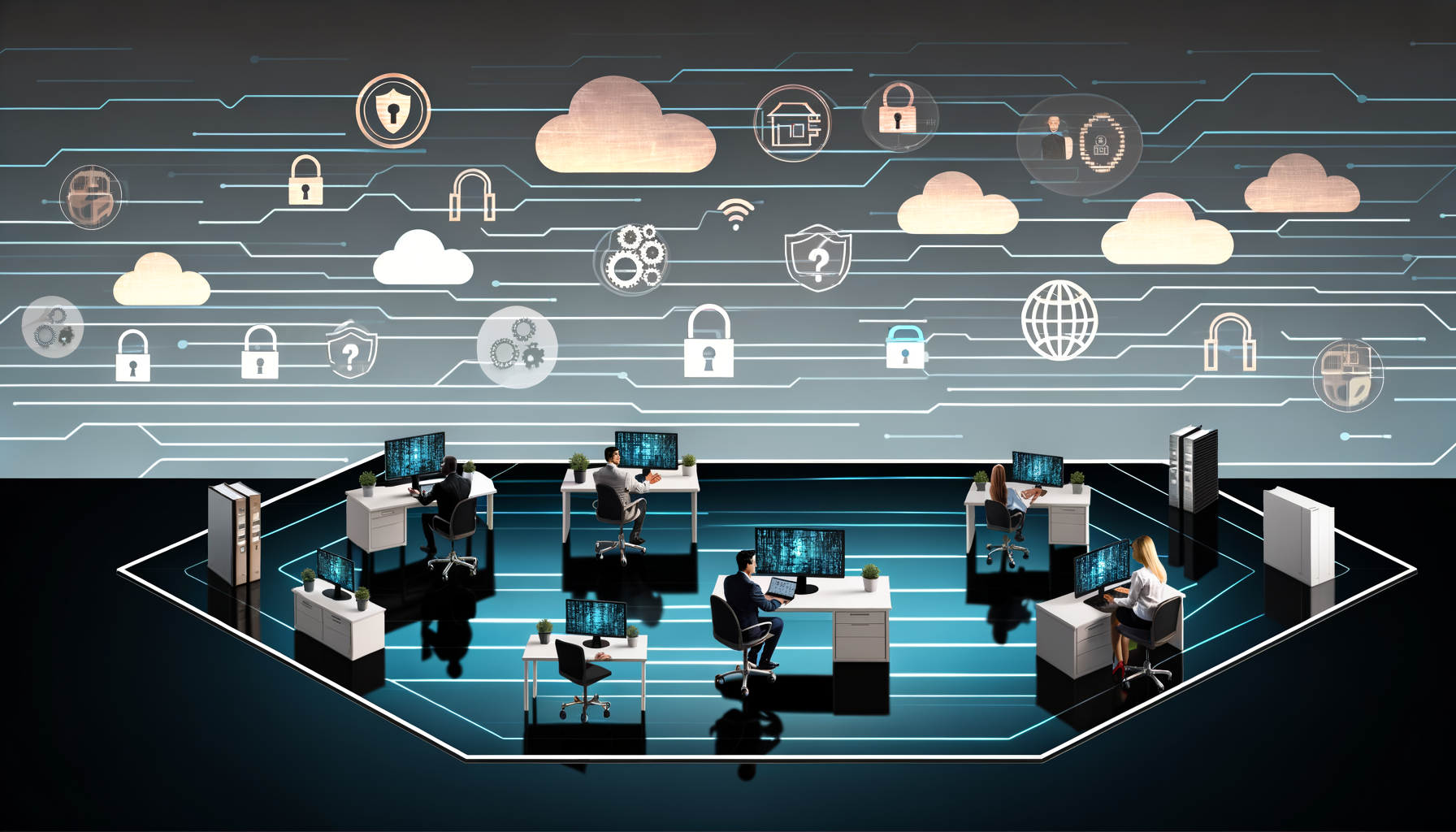
Navigating Data Security in a Remote Work Environment
In today’s fast-paced and increasingly digital world, the shift towards remote work has brought about numerous benefits, from increased flexibility to the ability to tap into a global talent pool. However, with these advantages come significant challenges, particularly in the realm of data security. As someone deeply entrenched in the world of startups and technology, I’ve seen firsthand how crucial it is to navigate these challenges effectively. The security of our digital assets is paramount, and as we venture further into a remote-centric workspace, understanding and addressing these data security issues becomes not just important, but imperative.
The Growing Remote Work Trend
The trend towards remote work isn’t just a temporary phase; it’s a transformation in the way businesses operate on a global scale. More companies are recognising the benefits, and employees are demanding it. But as this trend grows, so too do the security risks associated with managing sensitive data outside the traditional office environment. It’s critical to prepare and adapt our security strategies to protect against potential breaches and data loss.
Data Security Challenges in Remote Work
Let’s face it, the transition to remote work isn’t a seamless process for many businesses, particularly when it comes to safeguarding data. Here are some of the primary challenges I’ve identified:
- Unsecured Networks: Many employees end up using their home networks to access company data. Unlike corporate networks, these are often insufficiently secured, increasing the vulnerability to attacks.
- Device Security: As remote workforces rely on personal devices, ensuring these devices are secure is a real hurdle. Companies must tackle issues related to the lack of corporate control over personal desktops and laptops.
- Data Access: Granting employees access to necessary data while ensuring that such access is monitored, justified, and secure is crucial. Mismanagement here could lead to unauthorized access and data breaches.
- Lack of Cybersecurity Training: Employees unaware of basic cybersecurity principles might unintentionally click on phishing links or download malware, jeopardizing company data.
Strategies to Enhance Data Security
Having identified the challenges, the next step is to strategize around them. Here’s how businesses can bolster their data security protocols:
1. Implement Robust Security Measures
While working remotely, robust security measures such as VPNs, firewalls, and encryption become non-negotiable. These tools help secure data in transit and shield it from unauthorized access.
2. Encourage and Implement Multi-Factor Authentication
Employers should insist on multi-factor authentication (MFA) for all applications and data access points. MFA adds an extra layer of security, making it harder for cybercriminals to gain access.
3. Regularly Update Software and Systems
Staying current with software updates and security patches is critical in combating vulnerabilities. Companies should enforce a policy of regular updates across all employee devices.
4. Educate and Train Your Team
Education is key. Employees should be made aware of security best practices and trained to recognise phishing attempts. Regular cybersecurity training sessions can significantly reduce the risk of human errors.
Creating a Culture of Security
Data security isn’t just a technical issue; it’s a cultural one. Encouraging a security-first mindset across your company can vastly improve your resilience against breaches. This begins from the top-down, where leadership demonstrates a commitment to data security by investing in resources and policies that safeguard information.
Conclusion
In navigating the intricacies of remote work, data security stands as a formidable challenge. Yet, by understanding these challenges and crafting a strategic response, businesses can protect their critical information and maintain their reputation in the digital space. As we continue to embrace the remote work model, I encourage my fellow entrepreneurs and business leaders to stay vigilant, informed, and proactive. The security of our data and, ultimately, our businesses depend on it. For more insights and resources on data security, feel free to explore more on our platform and join me in this crucial conversation.
